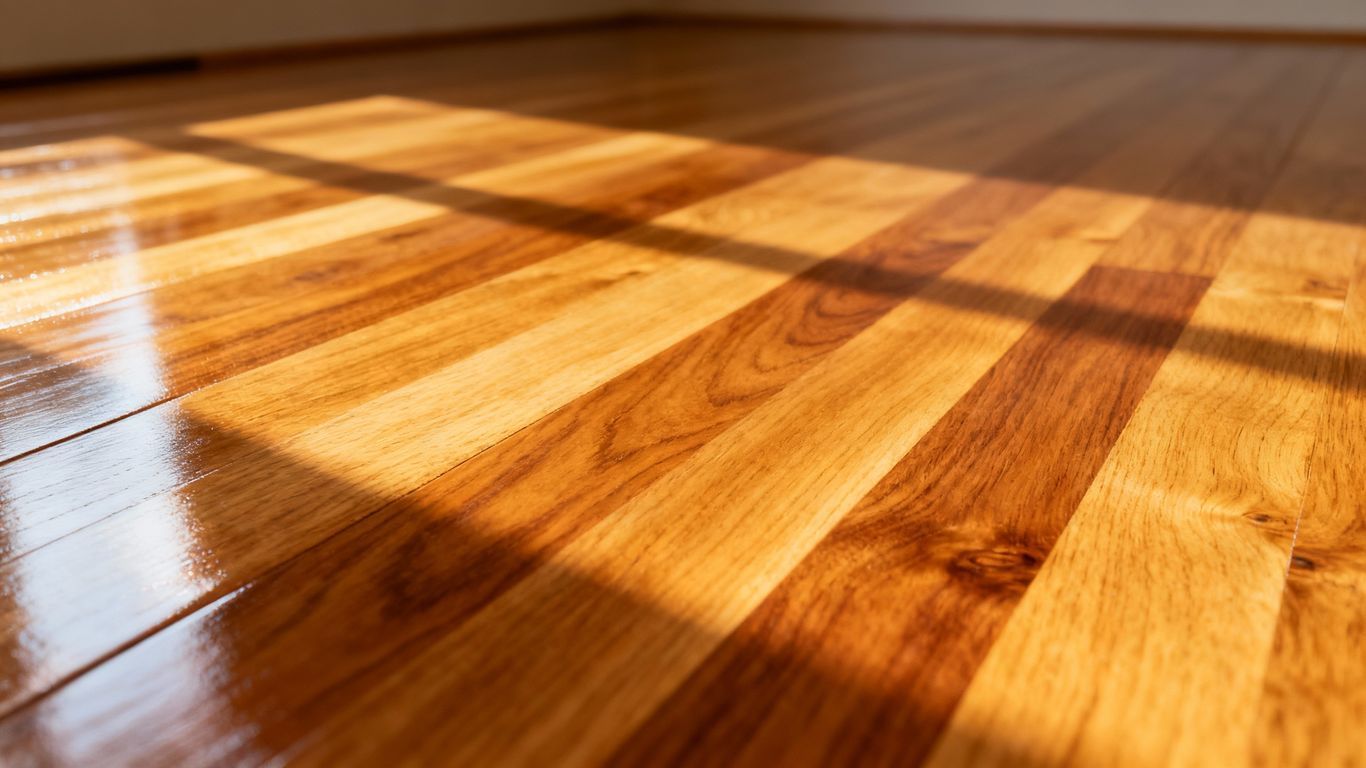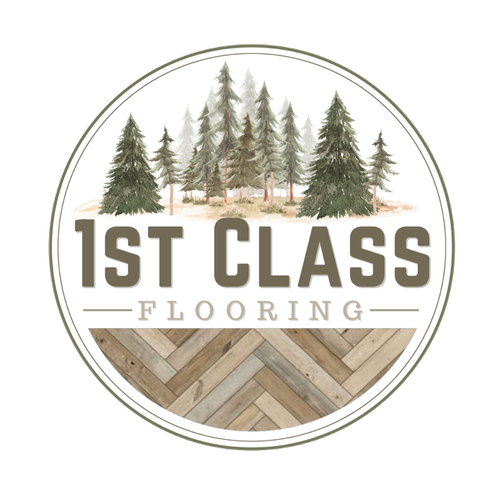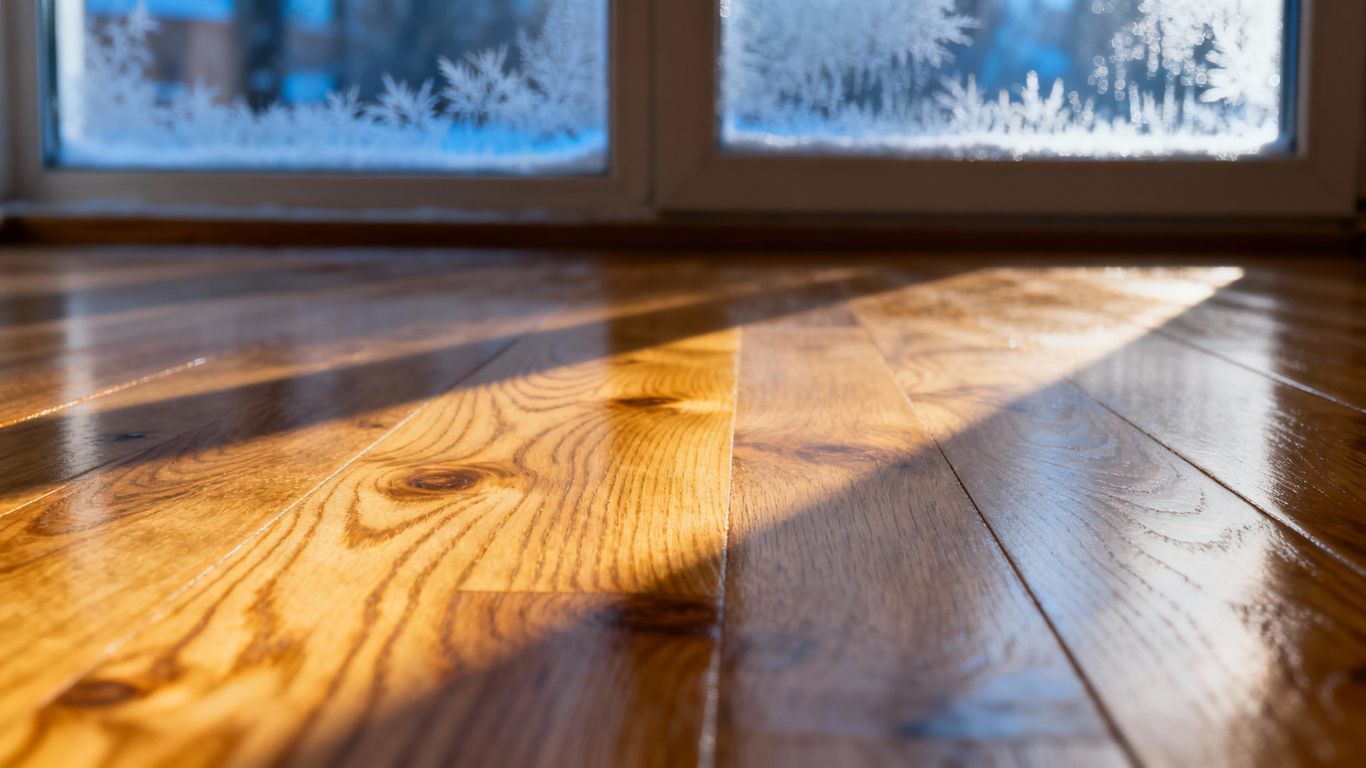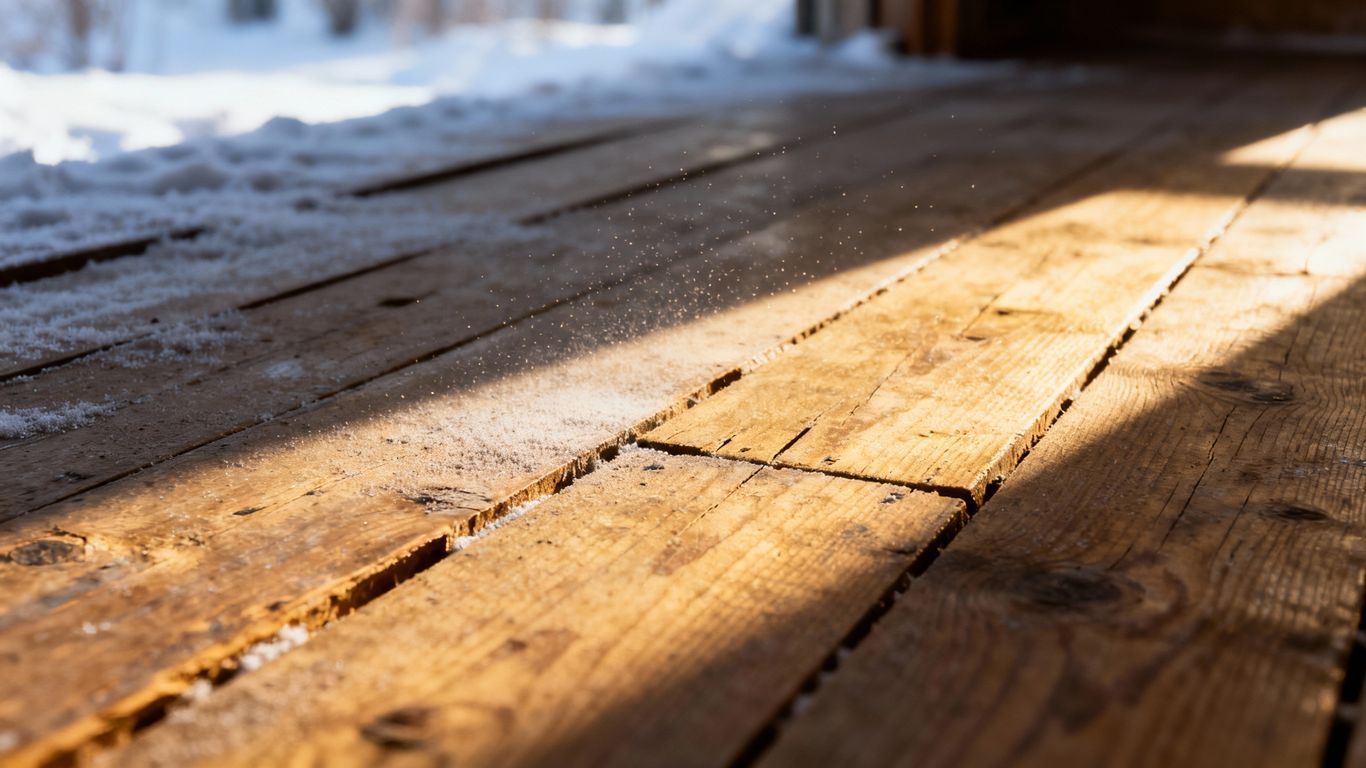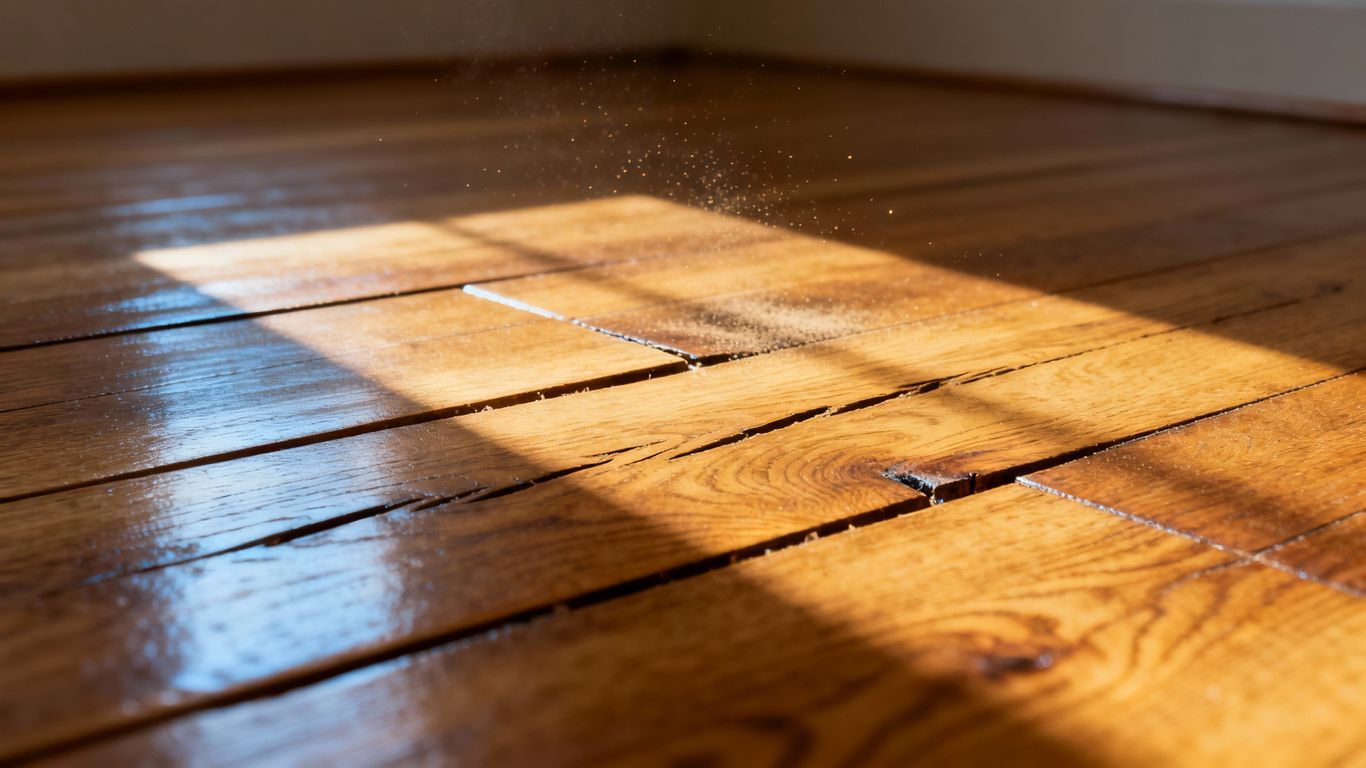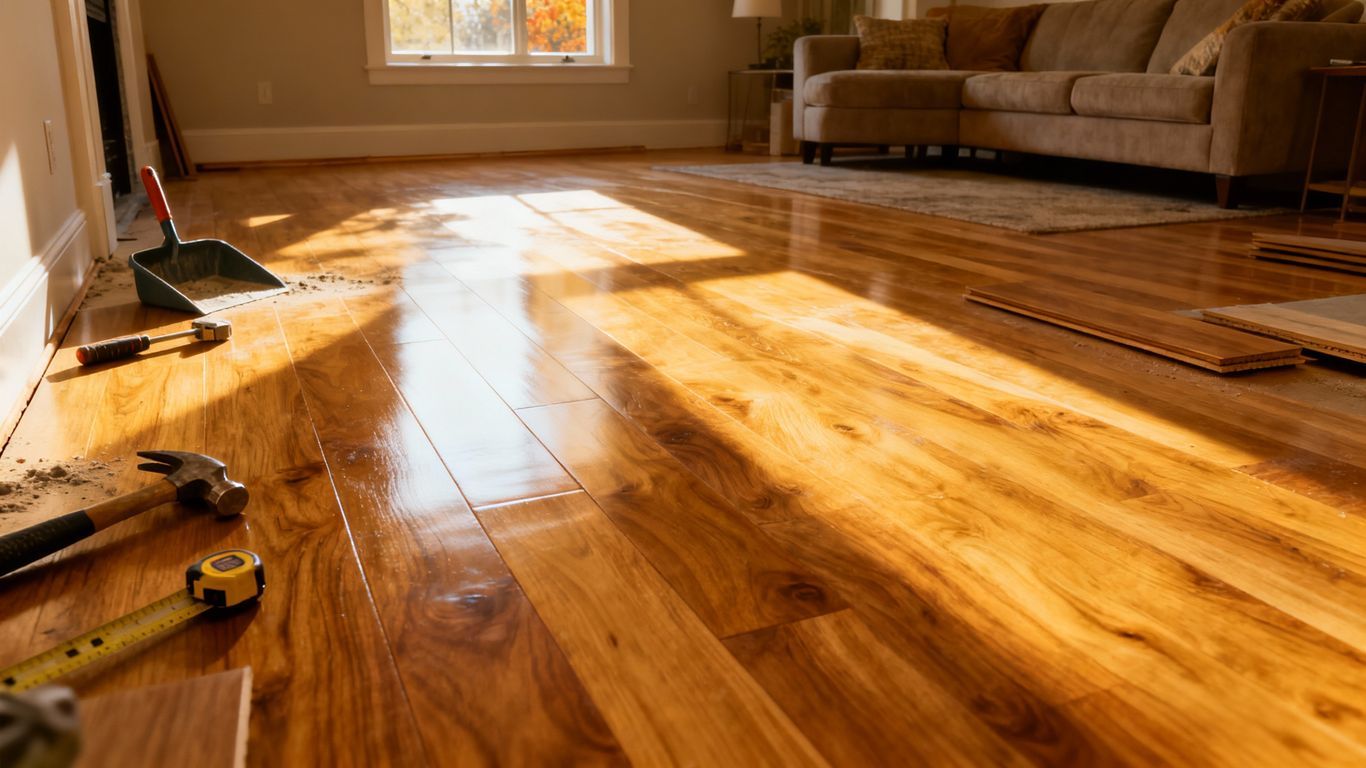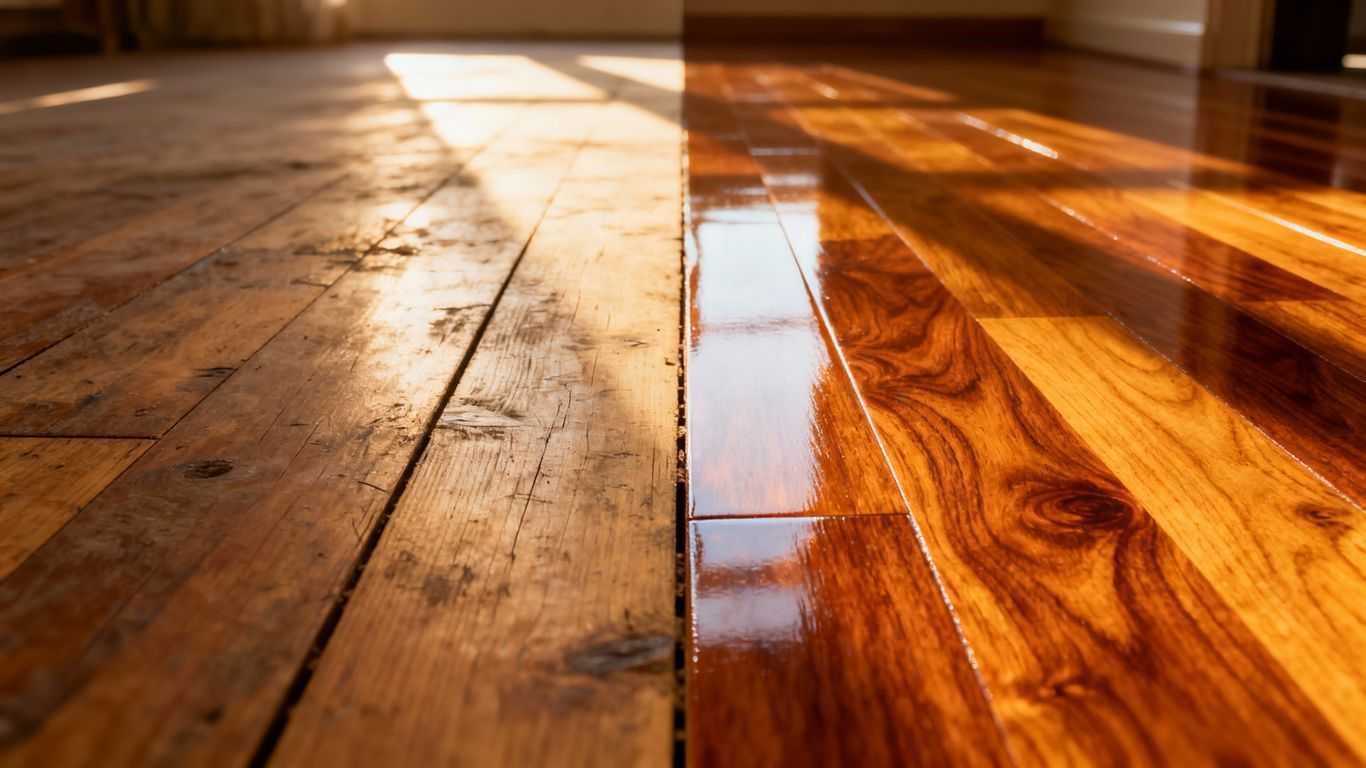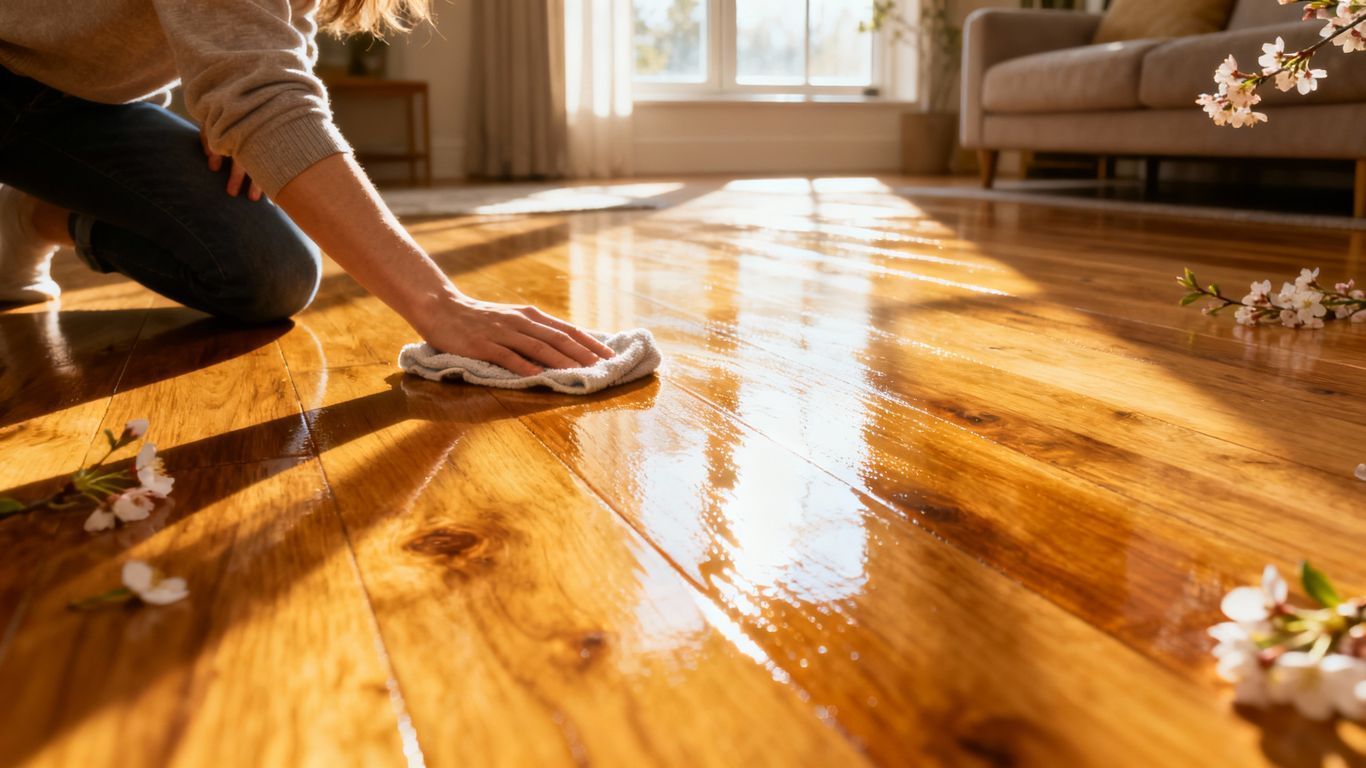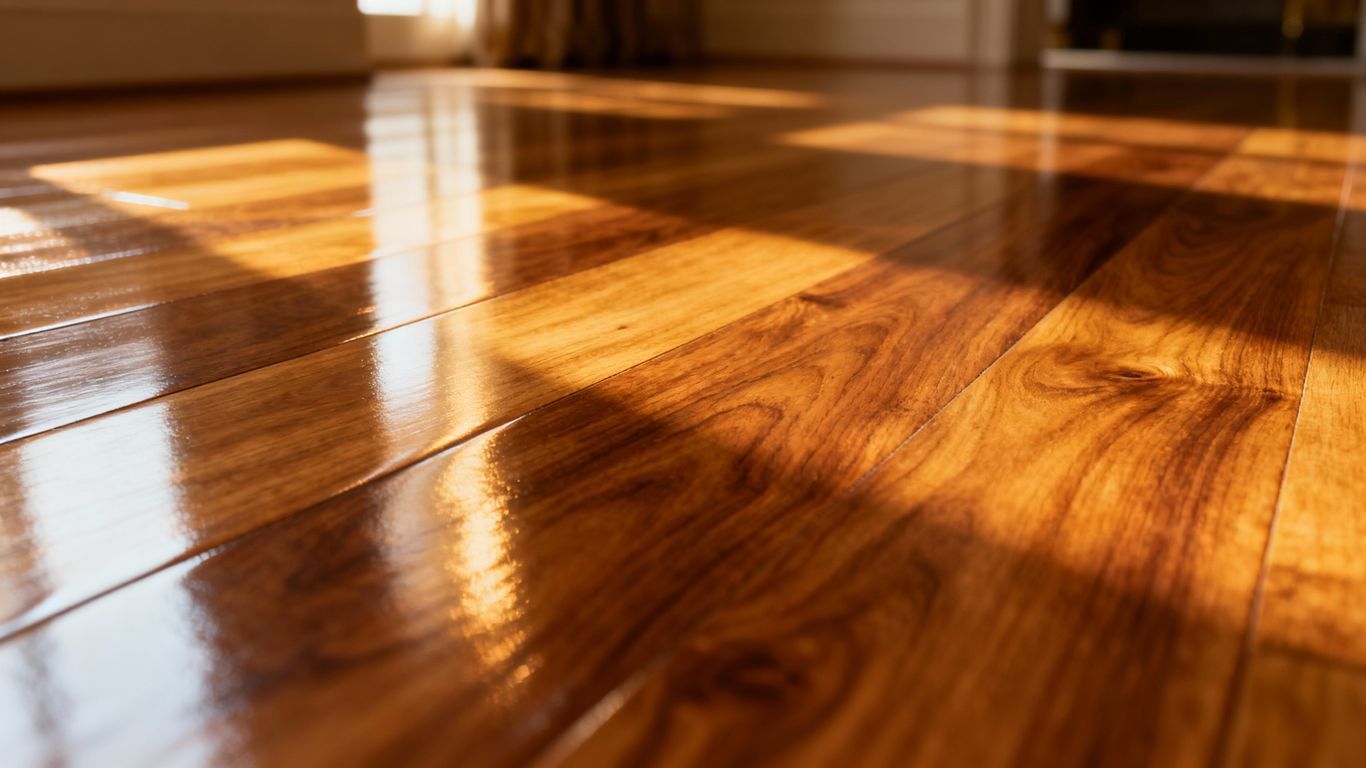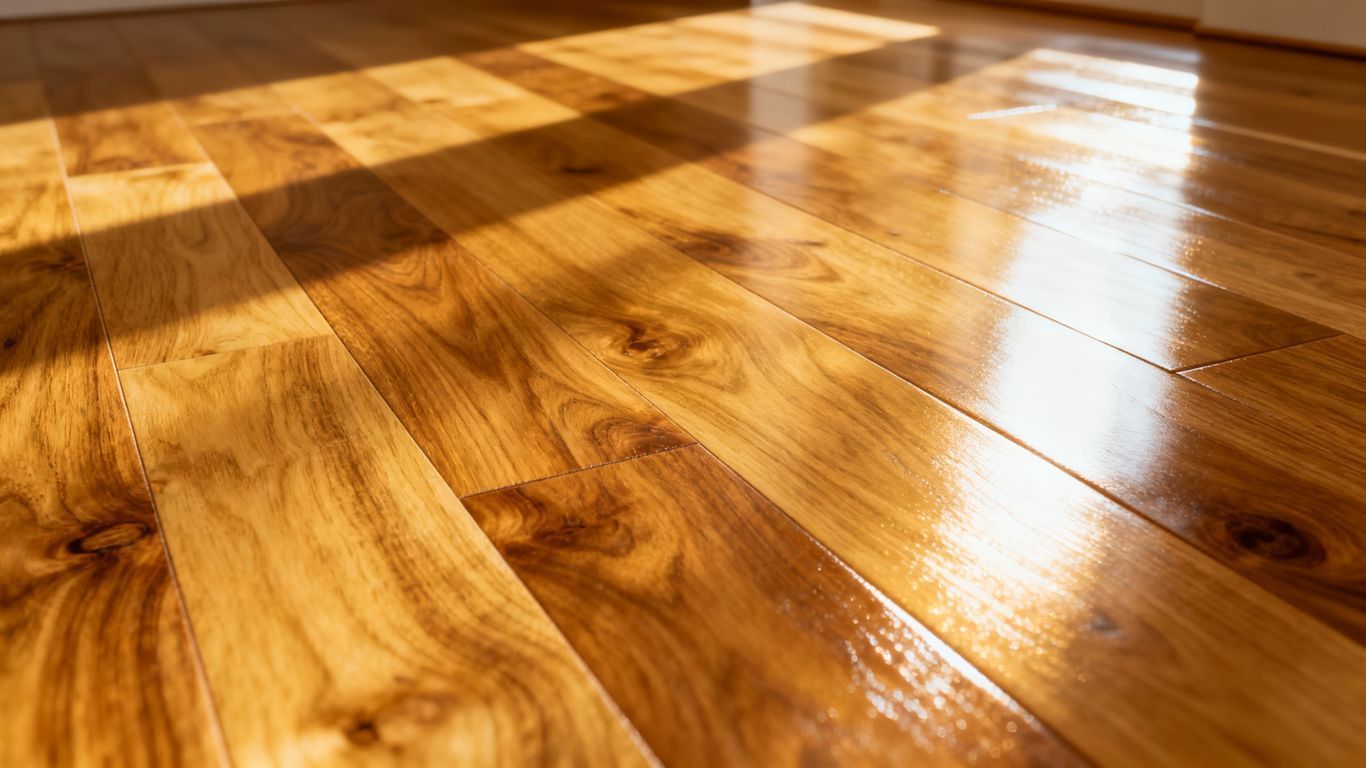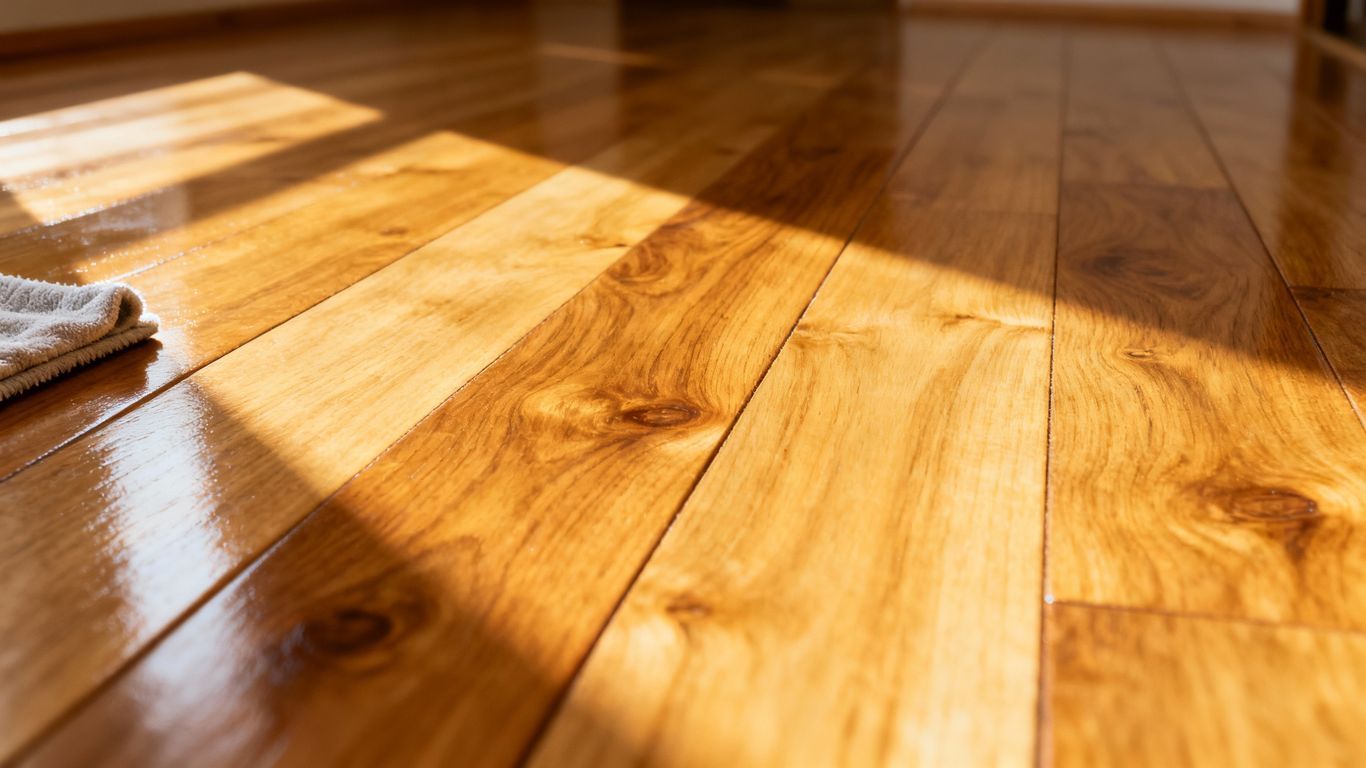Avoid These Summer Flooring Mistakes in Dalton, GA & Chattanooga, TN
Summer is a great time for fun, but it can also be tough on your floors. Whether you're in Dalton or Chattanooga, the heat and increased activity can cause problems. We'll look at some common mistakes people make and how to avoid them, especially if you have beautiful Dalton hardwood flooring.
Key Takeaways
- Protect your Dalton hardwood flooring from direct sunlight to prevent fading and damage from UV rays.
- Control indoor humidity levels, especially in humid climates like Chattanooga, to prevent wood from expanding or contracting.
- Be mindful of footwear and use rugs to prevent scratches and dents from summer activities.
- Choose flooring materials that can handle moisture and wear, like engineered wood or tile, for better summer durability.
- Clean your floors gently, avoiding too much water and harsh chemicals, to maintain their finish and prevent damage.
Protecting Your Dalton Hardwood Flooring From Sun Damage
Summer in Dalton means sunshine, and while that's great for outdoor fun, it can be tough on your hardwood floors. Those bright rays might seem harmless, but they can actually do a number on your wood. Direct sunlight can cause wood to fade and even change color over time. It's like a sunburn for your floors, really.
Understanding UV Rays and Wood
So, what's happening here? UV rays, the same ones that tan our skin, are also affecting the lignin in wood, which is basically what gives it its color. When these rays hit your floor, they break down that lignin. This leads to that dreaded fading or darkening effect. Different wood species react differently, but pretty much all of them are susceptible to some degree of change. It’s not just about looks, either; prolonged exposure can sometimes make the wood more brittle.
Window Treatments for Shade
This is where you can really make a difference. Think about how you can block those rays before they even touch your floor. Curtains are a classic for a reason. Sheer curtains can diffuse the light, making it softer and less intense, while blackout curtains offer complete protection when you need it. Blinds are another good option; you can angle the slats to direct light away from your floors. Even window films can help. Some are designed to block UV rays while still letting in natural light. It’s a good idea to look into window treatments for shade that fit your style and your home's needs.
Strategic Furniture Placement
Where you put your furniture matters too. Try not to place large, heavy items like sofas or rugs directly in front of windows for extended periods. This creates a
Managing Humidity for Chattanooga Flooring
Summer in Chattanooga can bring some serious humidity, and if you have nice floors, this is something you really need to pay attention to. High moisture levels aren't just uncomfortable for us; they can actually do a number on your flooring.
The Impact of High Humidity
When the air gets thick with moisture, wood floors, especially, can start to swell. This means planks might expand, leading to buckling or warping over time. It’s not just wood, either. Other materials can absorb moisture, which can cause discoloration or even damage to the adhesive holding them down. Think of your floors like a sponge; they soak up what's around them. This can make seams more noticeable or even cause tiles to lift.
Using Dehumidifiers Effectively
Using a dehumidifier is a smart move for controlling indoor humidity. You want to aim for a consistent humidity level, generally between 30% and 50%. Don't just set it and forget it, though. You'll need to empty the water tank regularly, or set up a continuous drain if your unit has that option. Placing it in a central location helps it work more efficiently throughout your home. Keep doors and windows closed while it's running to get the best results.
Proper Ventilation Techniques
Good airflow is key to managing moisture. During cooler, less humid parts of the day, open up windows and doors to let fresh air circulate. This helps to naturally reduce indoor humidity. Using ceiling fans or portable fans can also help move the air around, preventing stagnant pockets where moisture can build up. Make sure your HVAC system's fan is set to 'on' rather than 'auto' sometimes, so it's always circulating air, even when not actively cooling. This can help distribute drier air from your AC unit.
Keeping your home's humidity in check isn't just about comfort; it's about protecting your investment. Consistent moisture control means your floors will look better for longer and you'll avoid costly repairs down the line.
Preventing Scratches and Dents During Summer Activities
Summer in Dalton and Chattanooga means more activity, which can unfortunately lead to more wear and tear on your floors. From kids running in and out with sandy feet to furniture being rearranged for backyard parties, your floors are definitely in the line of fire. Let's talk about how to keep them looking good.
Footwear Choices Indoors
It might seem like a small thing, but what people wear on their feet inside can make a big difference. Hard-soled shoes, especially those with little pebbles stuck in the treads, can cause tiny scratches that add up over time. Think about it – every step is like a mini-abrasion.
- Encourage a "shoes off" policy at the door. It’s a simple habit that protects your floors.
- Keep a basket of clean, soft indoor slippers or socks near the entrance for guests.
- Educate family members on why this is important, especially younger ones.
Using Area Rugs Strategically
Area rugs are fantastic for adding style and comfort, but they're also your floors' best friend during busy summer months. They act as a protective layer in high-traffic areas, catching dirt and preventing direct contact with shoes or furniture legs.
- Place rugs in entryways to trap dirt and moisture before it gets tracked further.
- Use them under dining tables and chairs to prevent scratches from movement.
- Consider runners in hallways where there's a lot of foot traffic.
Protecting Floors During Moving or Rearranging
Summer is often a time for redecorating or hosting events, which might mean moving furniture. Dragging heavy items is a surefire way to goude or scratch your flooring. Always use furniture sliders or felt pads on the bottom of legs and furniture pieces. If you're moving something particularly heavy, consider lifting it entirely rather than sliding. It’s also a good idea to lay down a temporary protective covering, like a thick drop cloth or plywood, if you’re moving large appliances or doing any work that might involve tools. Remember to check out local safety tips for moving heavy objects, as keeping yourself safe is just as important as protecting your floors.
Taking a few preventative steps now can save you a lot of hassle and expense down the road. It’s all about being mindful of how your floors are used during these active months.
Choosing the Right Materials for Summer Durability
Summer brings sunshine and fun, but it can also be tough on your floors. When picking out new flooring or thinking about what holds up best during the warmer months, it’s smart to consider the materials. Some options just handle heat and moisture better than others.
Considering Moisture-Resistant Options
When the humidity climbs, especially in places like Chattanooga, you want flooring that won't warp or buckle. Materials that naturally resist moisture are a good bet. Think about things like porcelain tile or certain types of luxury vinyl plank. These can stand up to spills and dampness without getting ruined. It’s a big relief not to worry about every little splash.
The Benefits of Engineered Wood
Now, if you love the look of real wood, engineered wood is a solid choice for summer. Unlike solid hardwood, it’s built with layers, which makes it more stable. This means it’s less likely to expand and contract with changes in temperature and humidity. You get that beautiful wood grain without as many of the summer-related headaches. It’s a good way to get that natural feel in your home, even when the weather outside is unpredictable. You can find a wide selection at places like The Home Depot.
Exploring Tile and Vinyl Alternatives
Beyond engineered wood, tile and vinyl are really popular for a reason. Ceramic and porcelain tiles are practically waterproof and super durable. They don't care if it’s humid or if someone tracks in water from the pool. Luxury vinyl plank (LVP) and luxury vinyl tile (LVT) are also great. They mimic the look of wood or stone but are much more forgiving when it comes to moisture and wear. Plus, they’re often easier to clean, which is a win during busy summer days.
Picking the right flooring material from the start can save you a lot of trouble down the road, especially when dealing with the unpredictable weather patterns that summer can bring. It’s about making a smart choice that balances looks with practicality.
Summer Cleaning Mistakes That Harm Your Floors
Summer cleaning can feel like a chore, especially when you’re trying to keep your floors looking good. But some common cleaning habits can actually do more harm than good. It’s easy to get carried away with cleaning during the summer months, but being too aggressive can damage your floors.
Over-Wetting During Cleaning
This is a big one, especially for hardwood or laminate floors. When you use too much water, it can seep into the seams and cause the material to swell or warp. Think about it – wood and excess moisture aren't exactly best friends. For most hard surfaces, a damp mop is all you need. You want to clean, not flood the place. Always wring out your mop until it’s barely wet.
Using Harsh Chemical Cleaners
Those super-strong cleaners might seem like they’re getting the job done, but they can strip away the protective finish on your floors. This leaves them vulnerable to damage and can even cause discoloration over time. It’s better to stick with pH-neutral cleaners or even just warm water and a little bit of mild soap. You can find gentle cleaning solutions specifically made for different floor types, which is a good idea if you're unsure. A good rule of thumb is to test any new cleaner in an inconspicuous spot first.
The Importance of Gentle Drying
After you mop, don't just leave the floor to air dry, especially if you used more water than you should have. Water left sitting on the surface can still cause damage. Use a clean, dry towel or a microfiber cloth to dry the floor immediately after cleaning. This is especially important for wood and laminate. It helps prevent water spots and stops moisture from getting into the material. Proper drying is just as important as the cleaning itself for maintaining your floor's integrity. You want to avoid common habits that contribute to dirty floors, like not cleaning up spills promptly.
Sometimes, the simplest approach is the best. Instead of reaching for the strongest cleaner, consider what your floor actually needs. A little bit of care goes a long way in keeping your floors looking great all summer long. Remember, a clean floor doesn't have to mean a damaged floor.
Maintaining Your Dalton Hardwood Flooring's Finish
Keeping your hardwood floors looking good in Dalton means paying attention to the finish. It's the protective layer that keeps your wood looking its best, and summer can be tough on it. Let's talk about how to keep that shine.
Regular Dusting and Sweeping
This might seem obvious, but it's really important. Dust and grit are like tiny sandpaper particles just waiting to scratch up your floor's finish. You want to get rid of them before they can do any damage.
- Use a soft-bristle broom or a dust mop daily, especially in high-traffic areas.
- Vacuum with a hard floor attachment, making sure the beater bar is turned off.
- Pay attention to entryways where dirt is most likely to be tracked in.
Appropriate Polishes and Waxes
Over time, even the best finish can wear down. Using the right products can help maintain it. But be careful – not all polishes are created equal, and using the wrong one can actually make things worse.
- Choose a polish specifically designed for your type of hardwood finish (e.g., polyurethane, oil-based).
- Apply sparingly, following the product's instructions. Too much can lead to a sticky or cloudy buildup.
- Test any new product in an inconspicuous spot first.
Addressing Spills Immediately
Summer often means more drinks and maybe a few more spills. Liquids left sitting on your hardwood can seep into the wood and cause staining or damage to the finish. Wipe up any spills the moment they happen.
Don't let liquids sit around. A quick wipe with a soft, dry cloth is usually all it takes to prevent a bigger problem down the road. For tougher spots, a slightly damp cloth can work, but always follow up with a dry one.
Keeping your Dalton hardwood floors looking great is simple! Regular cleaning with the right products will help maintain that beautiful shine. For more tips on how to care for your floors and keep them looking new, visit our website today!
Wrapping Up Your Summer Flooring
So, there you have it. Summer in Dalton and Chattanooga can be tough on floors, but with a little care, you can keep yours looking good. We talked about avoiding too much sun, not letting spills sit, and keeping pets' nails in check. It's not rocket science, really. Just paying attention to the little things can make a big difference. Your floors will thank you for it, and you won't have to worry about costly repairs down the road. Enjoy your summer without flooring headaches!
Frequently Asked Questions
How does the summer sun hurt my wood floors?
Direct sun can make your hardwood floors look faded and can even cause them to warp. Think of it like a sunburn for your wood! Using curtains, blinds, or even special UV-blocking window films can help keep those strong rays out.
Why is humidity bad for floors in the summer?
When it's super humid, your floors can swell up, especially wood ones. This can cause them to buckle or lift. Using a dehumidifier helps take out extra moisture from the air, keeping your floors happy and flat.
Should I take my shoes off inside during the summer?
Wearing shoes inside can track in dirt and grit, which are like tiny sandpaper pieces that can scratch your floors. It's a good idea to have a 'shoes off' rule at the door or at least switch to soft slippers or socks.
Are some floor types better for summer weather?
Yes, some flooring materials handle summer heat and moisture better than others. Materials like tile, luxury vinyl plank (LVP), or engineered wood are often more forgiving with changes in temperature and humidity than solid hardwood.
What's wrong with using a really wet mop?
Using too much water when you clean can seep into the floor's material, especially wood. This can lead to damage like warping or stains. Always use a damp mop, not a soaking wet one, and dry the floor right after.
How can I keep my wood floors looking good all summer?
Giving your floors a quick sweep or dust mop regularly helps remove dirt and grit before it can scratch the surface. For wood floors, using the right kind of polish or wax can add an extra layer of protection to the finish.
